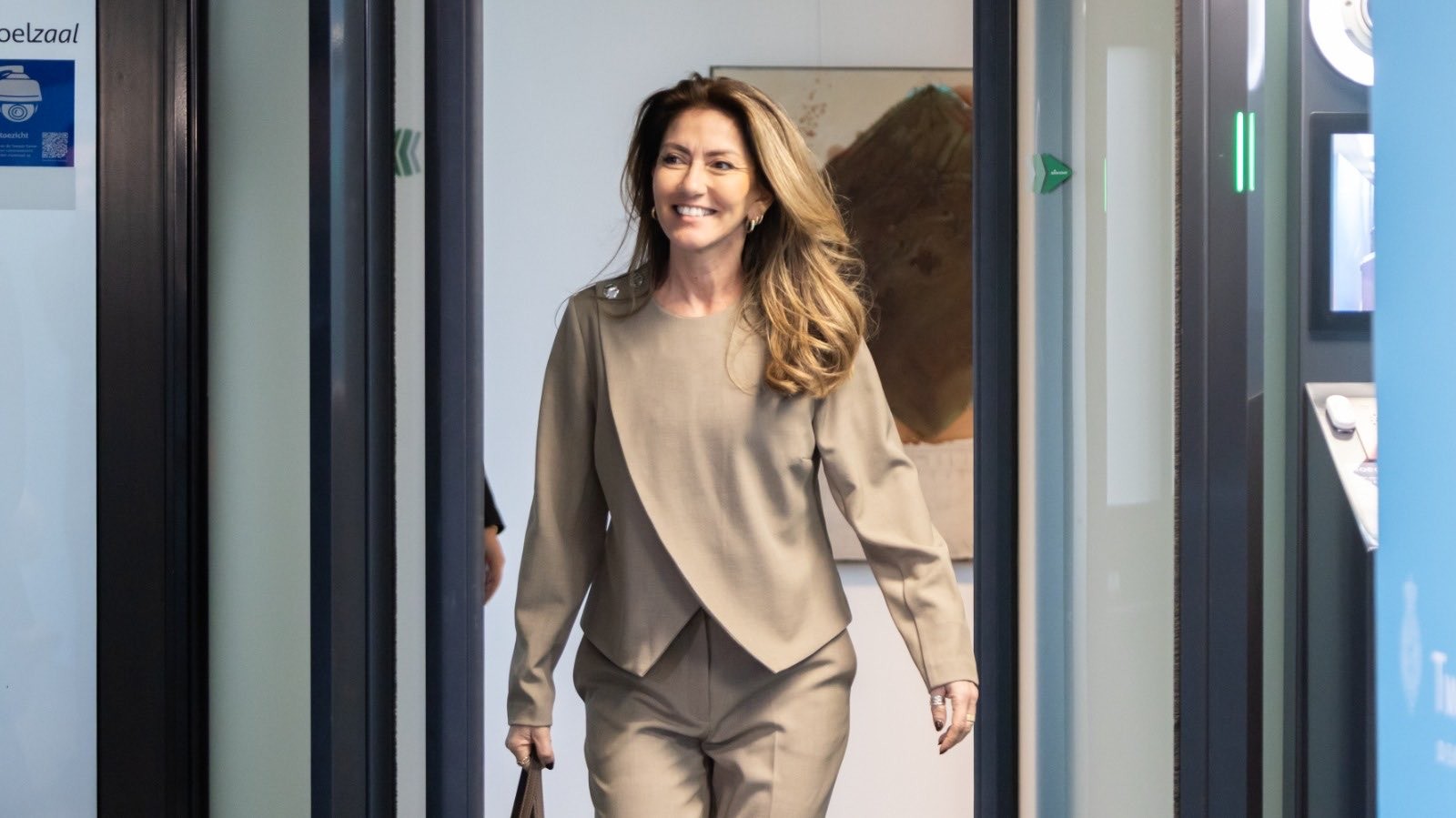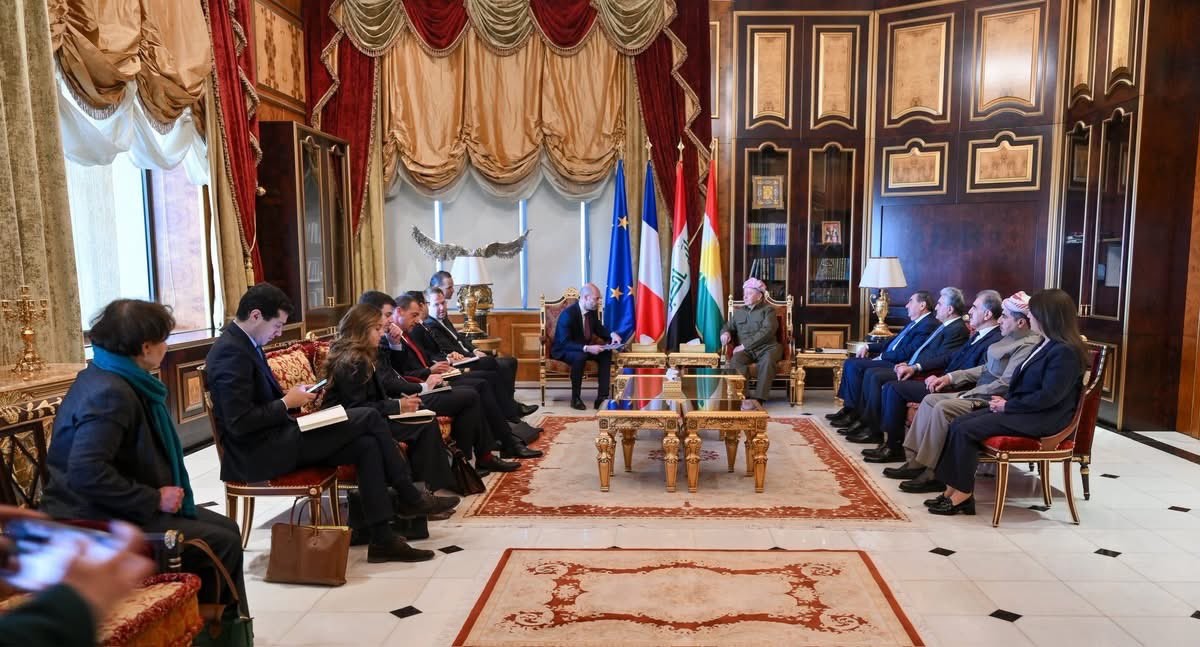Senior Kurdish leaders met with U.S. Ambassador to Iraq Alina Romanowski on March 30 and discussed their concerns over the parliamentary elections in the Kurdistan Region scheduled for June 10.
In a statement released on March 18, the Political Bureau of the Kurdistan Democratic Party (KDP) announced that the KDP would boycott the Kurdistan Region’s parliamentary elections. It remains unclear whether the elections will even take place after having been delayed several times since October 2022.
“We consider it in the interest of our people and country that our party does not endorse unconstitutional decisions and an imposed system outside the will of people of the Kurdistan Region and its constitutional institutions and not participate in an election that is illegal and unconstitutional and conducted under an imposed system,” the KDP said.
The KDP decision to boycott the elections came after rulings by the Federal Supreme Court of Iraq that have undermined the institutions of the Kurdistan Region and eliminated quota seats for minorities within the Region.
In his meeting with Ambassador Romanowski, Kurdistan Regional Government (KRG) Prime Minister Masrour Barzani stressed that the KRG has called for elections for the past two years, “in a process that is lawful, legitimate and constitutional to ensure fair, transparent and credible elections.”
In addition, he reiterated that the Kurdistan Region has met all its constitutional duties and its constitutionally defined rights must no longer be violated.
Ambassador Romanowski reportedly expressed her support to resolving disputes between the Kurdistan Region and the federal government of Iraq through dialogue and in line with the constitution of Iraq. The two also discussed the need for parliamentary elections.
Kurdistan Region President Nechirvan Barzani met with Ambassador Romanowski on March 30 and the two “shared their perspectives on the significance of the Kurdistan parliamentary elections and the views and concerns of the various stakeholders.”
“They emphasized the importance of resolving Erbil-Baghdad issues in accordance with the Constitution to safeguard the rights of all,” the Presidency of the Kurdistan Region said.
President @masoud_barzani receives Ambassador of the United States to Iraq
— KDP ForeignRelations (@kdpfro) March 30, 2024
President Masoud Barzani received Ambassador Alina Romanowski @USAmbIraq , in Salahaddin on Saturday.
The meeting discussed the political situation in Iraq and the region and shed light on the internal… pic.twitter.com/hdVNGrkaXz
In addition, KDP President Masoud Barzani in a meeting with Ambassador Romanowski on March 30 thanked the United States for its concern and friendship and reportedly said that “the KDP has always supported the holding of elections, but other parties have been obstructing the holding of elections for two years.”
He added that they “have come with external support through an unconstitutional institution to impose a method of conducting elections that is far from legal and constitutional principles, in addition to playing political games since 2014 with the budget and the livelihood of the people of Kurdistan, in order to weaken the position of the Kurdistan Region.”
Moreover, KDP President Barzani said that the statement of the Political Bureau is very clear and that the KDP is in favor of elections, “but it is in favor of elections that are transparent and express the will of the Kurdish people and free from external interference and the imposition of illegal methods that guarantee their own interests before the elections.”
He also said that the elections cannot be held without the participation of the Region’s religious communities and “that if all parties want the KDP to participate in the elections, they must take into account the reservations of the KDP to hold transparent and fair elections that serve stability and the democratic process.”
Ambassador Romanowski reportedly pointed out that they understand the KDP’'s concerns and reservations about the elections and they have discussed its demands and conditions with the UN Assistance Mission for Iraq (UNAMI) and Iraqi political parties, adding that the United States supports a strong and stable Kurdistan Region while encouraging continued dialogue with the other parties in order to reach a solution.
“The KDP statement shows the KDP’s frustration and a lack of agreement on the issue of parliamentary elections. However, efforts should be mobilized by all concerned parties to reach a settlement acceptable to all sides and ensure free and fair elections under international monitoring and support,” Mohammed Salih, a senior fellow at the U.S.-based Foreign Policy Research Institute, told Kurdistan Chronicle on March 31.
“Otherwise, Kurdistan will be plunged into a crisis of power legitimacy with potentially grave consequences for the Region and its people.”
“It should also be pointed out that the Federal Supreme Court’'s decisions have complicated this matter unnecessarily. The Court broke precedent in place since 2005 by putting the federal electoral commission in charge of Kurdistan Region elections and unwisely abolishing minority seats, instead of looking into the merits of geographical redistribution of the minority seats or limiting voting for those seats to minority community members,” he concluded.
The Independent High Electoral Commission of Iraq earlier extended the deadline for candidate list submissions until March 31.
Received Manoj Mathew , @UNIraq Director of Political Affairs . Reiterated our position on latest political developments. KDP is always with free and fair elections away from politicized , unconstitutional ruling of federal court. We are not submitting list of candidates to an… pic.twitter.com/nVr2q3GgZu
— Dr. Hemn Hawrami (@heminhawrami) March 28, 2024
However, in a meeting with Manoj Mathew, Director of UNAMI Office of Political Affairs, KDP Political Bureau member Dr. Hemin Hawrami underlined that the KDP “are not submitting a list of candidates to an election based on unconstitutional and political ruling of an unconstitutional federal court.”

